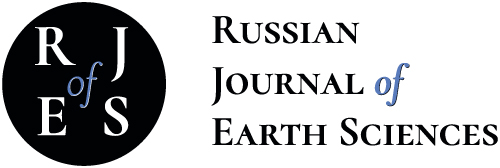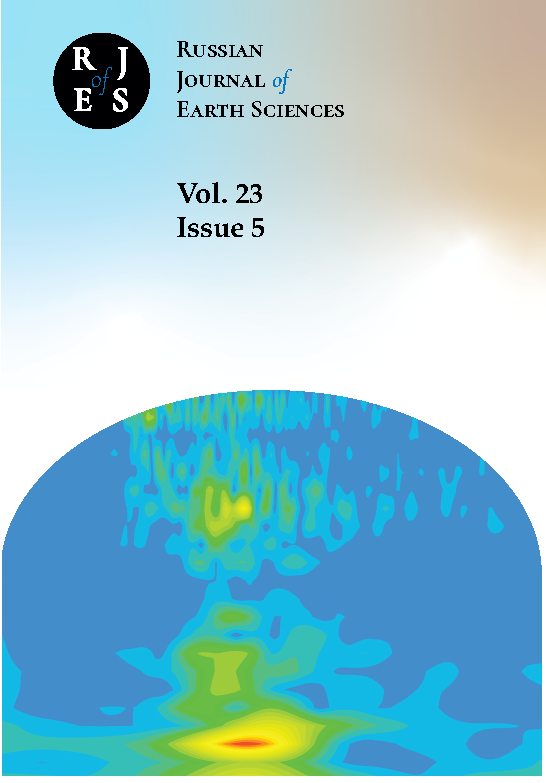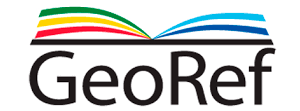Moscow, Russian Federation
UDC 537.84
CSCSTI 37.01
CSCSTI 37.15
CSCSTI 37.25
CSCSTI 37.31
CSCSTI 38.01
BISAC SCI SCIENCE
The previous paper of this series presented the results of a numerical investigation of the dependence of the dominant growth rates of Bloch eigenmodes on the diffusivity parameters (the molecular viscosity ν and molecular magnetic diffusivity η) in three linear stability problems: the kinematic dynamo problem, and the hydrodynamic and MHD stability problems for steady spaceperiodic flows and MHD states. The dominant eigenmodes (i.e., the stability modes, whose growth rates are maximum over the wave vector q of the planar wave involved in the Bloch modes) comprise branches. In some branches, the dominant growth rates are attained for constant half-integer q. In all the three stability problems for parity-invariant steady states, offshoot branches, stemming from the branches of this type, were found, in which the dominant growth rates are attained for q depending on ν and/or η. We consider now such a branching of the dominant magnetic modes in the kinematic dynamo problem, where an offshoot stems from a branch of neutral eigenmodes for q = 0, and construct power series expansions for the offshoots and the associated eigenvalues of the magnetic induction operator near the point of bifurcation. We show that the branching occurs for the molecular magnetic diffusivities, for which the two eigenvalues of the eddy diffusivity operator become imaginary, and magnetic field generation by the mechanism of the negative eddy diffusivity ceases. The details of branching in the other linear stability problems under consideration are distinct.
Power series expansion, asymptotics, kinematic dynamo problem, Bloch magnetic mode, branching, neutral eigenmodes, magnetic eddy diffusivity, scale separation.
1. Andrievsky, A., A. Brandenburg, A. Noullez, and V. Zheligovsky (2015), Negative magnetic eddy diffusivities from the test-field method and multiscale stability theory, The Astrophysical Journal, 811(2), 135, https://doi.org/10.1088/0004-637x/811/2/135.
2. Arnol’d, V., Y. Zel’dovich, A. Ruzmaikin, and D. Sokolov (1982), Steady-state magnetic field in a periodic flow, Soviet Physics-Doklady, 266(6), 1357-1361 (in Russian).
3. Chertovskih, R., and V. Zheligovsky (2023a), Linear perturbations of the Bloch type of space-periodic magnetohydrodynamic steady states. I. Mathematical preliminaries, Russian Journal of Earth Sciences, 23, ES3001, https://doi.org/10.2205/2023ES000834.
4. Chertovskih, R., and V. Zheligovsky (2023b), Linear perturbations of the Bloch type of space-periodic magnetohydrodynamic steady states. II. Numerical results, Russian Journal of Earth Sciences, 23, ES4004, https://doi.org/10.2205/2023ES000838.
5. Rasskazov, A., R. Chertovskih, and V. Zheligovsky (2018), Magnetic field generation by pointwise zero-helicity threedimensional steady flow of an incompressible electrically conducting fluid, Physical Review E, 97(4), 043,201, https://doi.org/10.1103/PhysRevE.97.043201.
6. Zheligovsky, V. (2011), Large-Scale Perturbations of Magnetohydrodynamic Regimes, 330 pp., Springer Berlin Heidelberg, https://doi.org/10.1007/978-3-642-18170-2.

















